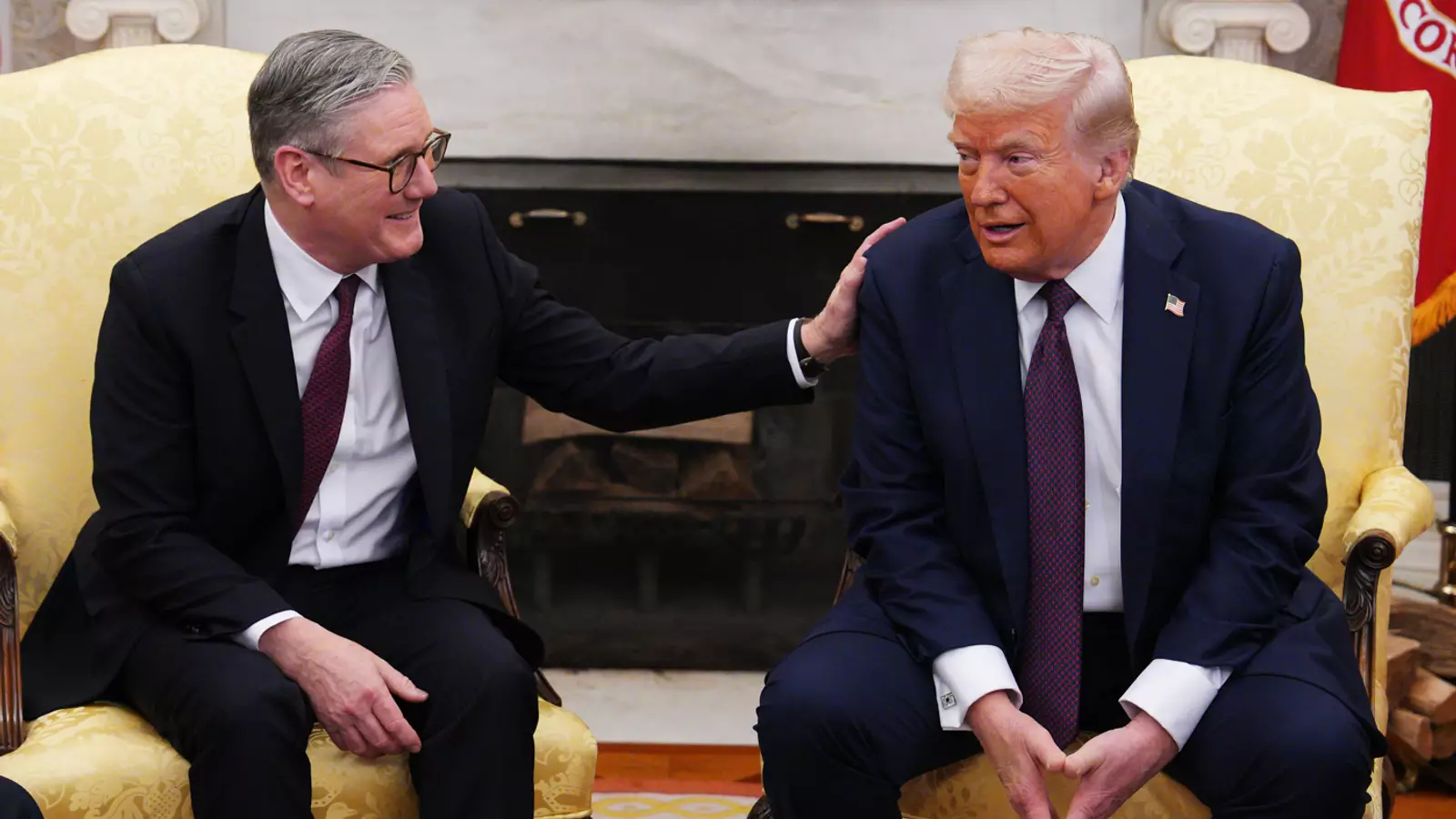In a tumultuous landscape where trade wars threaten the fragile progress made in international relations, Sir Keir Starmer’s cautious optimism regarding US-UK trade talks offers a sobering reminder of a reality fraught with peril. Just as we were beginning to chart a path toward economic stability following the upheaval of Brexit, the prospect of new tariffs imposed by the Trump administration looms large on the horizon this week. The notion of “liberation day” touted by President Trump is a mockery of the real liberation for which we should all strive: the liberation from economic inequities, not the promotion of further division through tariffs.
While Starmer acknowledges the layoffs and uncertainties that tariffs bring to the UK’s economy, he also suggests a “calm-headed” approach to these negotiations. However, does this calmness only serve as a veneer for deeper disarray? With the Trump administration lobbing potential tariffs of up to 25% on UK goods, it is hard to ignore the reality of the impending impact on the economy, which the Office for Budget Responsibility warns could shrink by 1%. Such a contraction isn’t merely a statistic on paper; it translates into real job losses, tax increases, and a potential downturn to already beleaguered industries. In a world increasingly defined by interdependence, the idea that tariffs are in the “best interest” of American workers disregards the global nature of today’s economies.
A Cautious Strategy or Avoidance of Tough Choices?
Evidence shows that while Starmer exhibits an admirable commitment to a non-reactive approach, one must question whether this represents prudent leadership or an aversion to making difficult choices. “All options have to remain on the table,” he stated, signaling a readiness to consider retaliation. But what does this truly mean in the context of rising tensions? Politicians should be clear about the consequences of retaliation: an escalation that actively harms the very industries we seek to protect. This survival instinct often neglects broader diplomatic relationships that could yield greater economic benefits in the long run.
Consider the business sector’s optimistic yet somewhat naive stance. Business and Trade Secretary Jonathan Reynolds expressed hope that these tariffs could be reversed soon, yet failed to mention the competitive edge that could be lost in the interim. While optimism can motivate, our leaders must also acknowledge the reality that economic wars can last for years, irrevocably reshaping entire industries.
The Dilemma of National Interest
Starmer’s insistence on “acting in the national interest” must be scrutinized carefully. Historically, invoking national interest as a political phrase often leads to self-serving policies that disregard the fabric of global cooperation. If we return to an insular mindset — placing immediate financial gain over long-term, collaborative trade agreements — we risk reinforcing a cycle of retaliatory tariffs from other nations and fracturing relationships built on mutual benefit.
Meanwhile, Trump’s assertion that tariffs will combat “unfair trade practices” functions as a convenient scapegoat. By labeling the current trade dynamics as unfair, he deflects attention from the more pernicious forces at play, namely, the shifting winds of globalization which render such simplistic categorizations inadequate.
The Effects on Vulnerable Sectors and People
It’s crucial to consider how these tariffs will affect vulnerable sectors of the UK economy. From the automotive industry to small businesses reliant on exports, the impending tariffs are not merely abstract concepts; they represent a growing existential threat. Economists and trade experts argue that the burden of tariffs doesn’t just fall on wealthy corporations but trickles down to the working-class individuals serving as the bedrock of our economy. As companies adjust prices in response to increased costs, everyday people will find themselves further squeezed in an already tight economic climate.
The recessionary effects of tariffs are magnified when we remember that the global economy is still reeling from the disruptions caused by the COVID-19 pandemic. The last thing we need is further destabilization resulting from yet another misguided trade initiative.
The looming tariffs serve as a stark reminder that our leaders must navigate the treacherous waters of trade with a united and strategic vision. A fragmented approach will not suffice in these turbulent times. The question remains: will we reflect on our past mistakes and rise to the challenge, or will we heedlessly stumble into a trade war that could reverberate through generations?


Leave a Reply